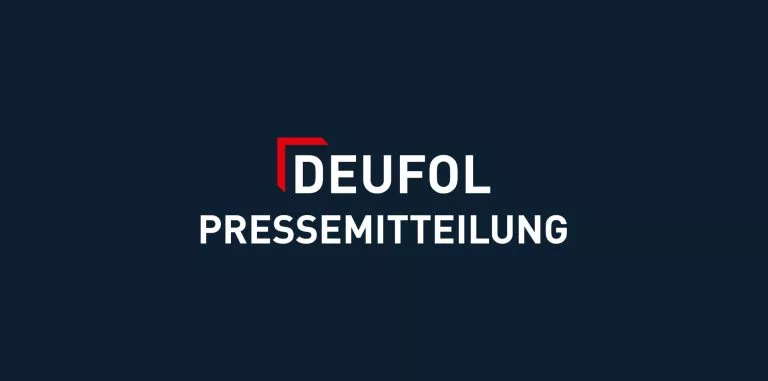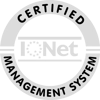Professional logistics planning is not just the operational core of a business, but also the strategic foundation that ensures goods and services are delivered in the right quantity, at the right time, to the right place, and in the right quality. It forms the bridge between the current state and market requirements and serves as a solid base to maximize efficiency in processes along the entire logistics value chain. But how do companies achieve this efficiency and secure their competitiveness? The answer lies in a carefully considered and professionally implemented logistics strategy.
In this article, we will examine how modern companies strategically align their logistics planning, not only to optimize transportation and logistics costs but also to effectively respond to challenges such as digitalization, sustainability, and changing market conditions. DEUFOL, as an expert in global logistics, has specialized in these very challenges and offers innovative logistics solutions that help companies enhance their logistic performance and establish a strong market presence.

The importance of logistics planning in a business context
In a world characterized by speed, flexibility, and adaptability, proper logistics planning can make the difference between market leadership and mediocrity. When ensuring current and future competitiveness in business logistics, planning plays a central role.
Every process within a company, whether it’s material flow, warehouse organization, or the selection of storage strategies, requires thorough and forward-looking planning and control. It’s not just about optimally using resources and minimizing logistics costs. It also involves responding to short- or medium-term market requirements and securing competitiveness.
An often-overlooked detail in logistics planning is the consideration of total costs. In addition to the investment costs for new technologies or facilities, future operating costs must also be considered. This holistic approach ensures that decisions are not based solely on short-term savings but strengthen the entire logistics network in the long term.
The main focus is on efficient planning that ensures products arrive at the desired location at the right time and in the right quality. For instance, when companies plan a new logistics center or want to evaluate their existing infrastructure, comprehensive and strategic logistics planning becomes the key to success.

The challenges of strategic logistics planning and how to master them
Strategic logistics planning is a complex task that takes into account a multitude of factors. It’s not just about transporting from A to B; it’s about creating an efficient, cost-effective, and agile logistics network. The challenges are diverse: from adapting to changing market requirements, warehouse planning, to managing material flow.
Companies constantly face the problem of optimizing their logistics processes to ensure efficient warehouse organization and an optimal logistics concept. Identifying the current state and all dependencies presents many challenges, including inventory analyses, delivery and receiving concepts, and the selection of storage strategies and aids.
Another critical point is the process and detailed planning. Operational logistics planning, focusing on a short to medium-term planning horizon, requires careful coordination and control of these processes. A suboptimal flow can lead to increased logistics costs, impact efficiency, and jeopardize a company’s competitiveness.
Faced with these challenges, many companies turn to experts to ensure that their logistics strategy meets market requirements while remaining efficient and competitive. Some companies, like DEUFOL, specialize in offering customized logistics solutions tailored to the specific needs and requirements of a business. With their global logistics expertise, such companies can help simplify and optimize the logistics planning process, enabling businesses to save both time and resources.

The future of logistics planning: digitalization and its impact
Likewise, the constant evolution of technology and digitalization does not pass by the logistics industry without leaving its mark. The future of logistics planning envisions a profound integration of technology into all processes, from warehousing to transport technology.
Digitization enables companies to monitor their logistics processes in real-time and make quick decisions based on current data. This, in turn, enhances efficiency in processes along the entire logistics value chain. Intelligent systems, for example, can analyze the current state of warehouses, perform inventory analyses, and automatically suggest solutions for challenges such as warehouse overcrowding or delivery delays.
Another advantage of digitization is the ability to build a future-proof logistics network. With modern technologies, companies can flexibly adapt their logistics strategy to changing market conditions. For instance, they can alter transport routes in real-time to respond to unexpected challenges such as weather conditions or roadblocks.
However, digitization is not without its challenges. It is crucial for companies to invest in the security of their digital systems. Data breaches or cyberattacks could disrupt operations and compromise confidential company information.
In the midst of this constantly evolving landscape, strategic logistics optimization increasingly becomes an art of the possible. An optimally designed logistics network, supported by cutting-edge technology, can make the difference between an efficient company and one that falls behind its competitors.

Sustainability in logistics planning: more than just a trend
Sustainability has evolved from a mere trend to a key component of corporate strategy in the modern business world, especially in the logistics sector. A comprehensive and holistic consideration of sustainability in logistics planning encompasses several key aspects:
Ecological responsibility: At the forefront is the endeavor of companies to minimize their CO₂ footprint. This can be achieved through efficient transport routes, the use of environmentally friendly vehicles, and the implementation of sustainable packaging materials. Reducing emissions and waste not only serves environmental protection, but can also lead to significant cost savings.
Social sustainability: In addition to the ecological dimension, social responsibility also comes into focus. This primarily involves fair working conditions and the safety of employees. An ethically oriented logistics strategy not only contributes to a positive corporate image but also strengthens the trust of business partners and customers.
Long-term business success: Investments in environmentally friendly and socially responsible logistics solutions are important not only for ethical reasons. They help companies to position themselves positively in an increasingly environmentally and socially conscious market. A responsible and environmentally aware image can become a significant competitive advantage and contribute to long-term business success.

The importance of choosing the right partners in logistics optimization
In an industry as dynamic and interconnected as global logistics, choosing the right partners is also crucial. These partnerships can make the difference between smooth operations and unexpected disruptions. While many companies have extensive internal resources, external partners can provide valuable support, especially in areas that require specialized knowledge or equipment.
Companies like DEUFOL, which specialize in logistics solutions, bring a wealth of experience and best practices. This can be particularly valuable when companies face complex challenges, such as planning a new logistics center or optimizing existing logistics processes.
But it’s not just about expertise. A good partnership is also characterized by trust, transparency, and open communication. Companies must be sure that their partners understand their business objectives and are committed to their success. Ensuring the required quality and efficiency throughout the logistics chain is a shared responsibility.
This doesn’t mean that every company needs external partners. However, in such a complex and rapidly changing industry, the right partnership can help companies remain flexible, adapt to changes, and ultimately enhance their competitiveness.

Our DEUFOL conclusion
Logistics planning is a multifaceted and essential tool for businesses, extending far beyond the mere transportation of goods from A to B. It encompasses strategic, operational, and tactical aspects that can impact a company’s efficiency, competitiveness, and sustainability. The right location and a well-thought-out spatial arrangement are often key to optimizing logistics performance. In the age of digitization and growing environmental consciousness, it is crucial to develop adaptive and sustainable logistics strategies.
Companies like DEUFOL recognize the opportunities inherent in logistics planning and leverage their expertise and resources to support businesses in this complex area. An effective logistics network that considers current needs while being forward-thinking can make the difference between market leadership and mediocrity.
The future of global logistics is clear: it will be both technologically advanced and sustainable. For businesses looking to succeed in this environment, thoughtful and strategic logistics planning is essential.
Contact us now for a personal consultation
The complex world of logistics planning can often seem overwhelming. However, with the right partner by your side, you can ensure that your business operates efficiently, competitively, and with a forward-looking approach. At DEUFOL, we combine expertise with practical experience to develop customized logistics solutions tailored to your specific needs.
If you want to fully leverage your logistics performance and are ready to take your processes to the next level, we are here to help. Contact us today for a comprehensive and personalized consultation. We look forward to working with you and achieving success together.




